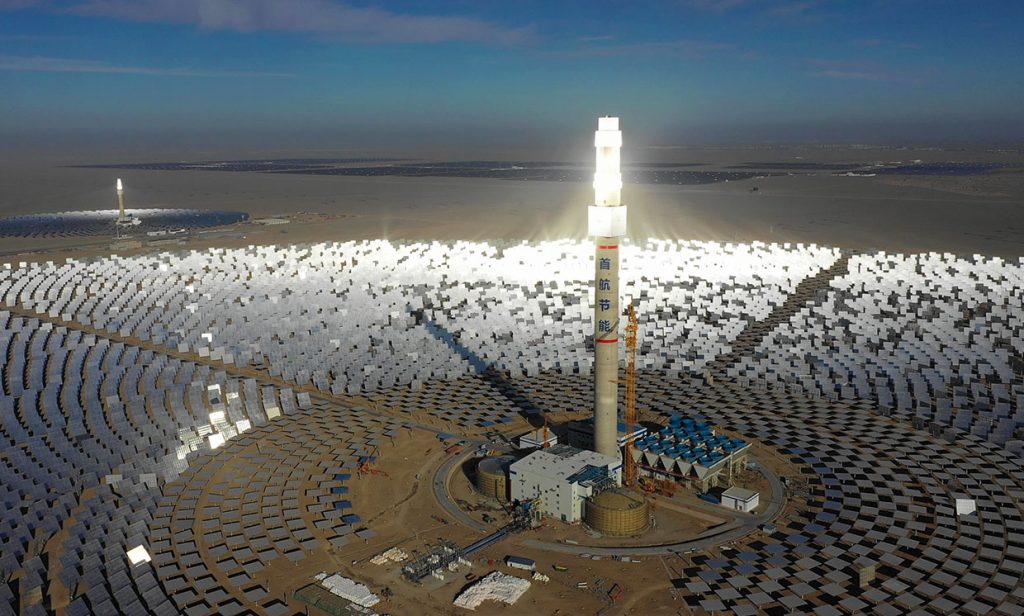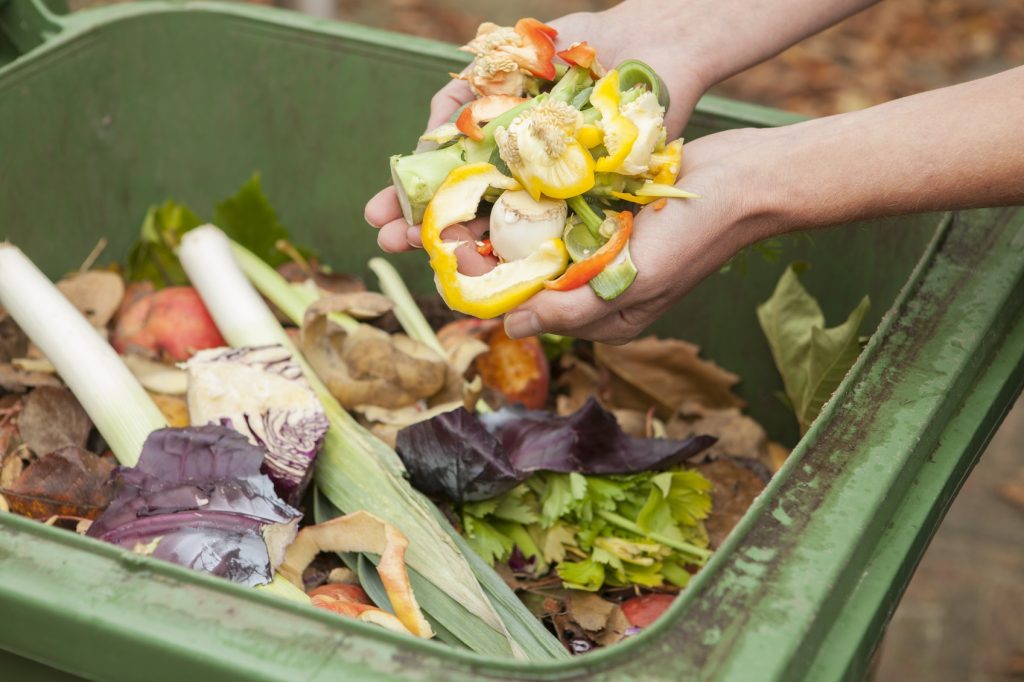To: The Impact Readers
We did a thing 🤠
We figured we could continue to add value to our growing readership by sharing highlights/analysis on different impactful companies in the industry! We also partnered up with Climatebase to provide you access to job opportunities at these interesting companies we are breaking down.
Because…go secure that 💰 and get paid.
In Your Inbox: Wastewater management is a industry of opportunity; $700M DOE loan project falls through; Organic waste recycling; a break down of Ecosia

Epic CleanTec, a startup decentralizing wastewater treatment, just raised a $2.6M seed round. Epic CleanTec helps buildings reduce water demand by up to 90%, saving building owners hundreds of thousands of dollars annually on their water and sewer bills.
Why does this matter?
What’s next?
Sign up for The Impact and learn the perspectives behind the latest sustainability trends

If you ain’t trying bold ideas then there is damn well sure no way we are going to make progress towards transitioning our electrical grid to clean and renewable infrastructure.
The DOE or Department of Energy is known to take risks on bold ideas. We as taxpayers provide that capital to help support frontier ideas to make it into market.
In this case the DOE loaned Tonopah Solar Energy LLC $737 Million to fund its solar thermal plant in Nevada. Sadly, Tonopah filed for bankruptcy while still owing the government $425 M on its loans…Based on the bankruptcy proceedings the government will still recover $200 M of this loan.
Now in the large scheme of things – $700 M ain’t nothing for the government to worry about – but what it does set is a bad precedent for the DOE’s loan guarantee program built under the Bush administration.
The goal was to fund risky projects that typical financiers stay away from – which is a good thing at a high level – but it doesn’t necessarily drive innovation in the way we should be focusing. More capital doesn’t allow companies to brute force into a market.
If just having unlimited piles of cash would make a company or technology profitable, the art of building business wouldn’t be what it is. In fact – what I believe this has done is set a bad taste in investors mouths for continuing to fund risky, frontier and thought provoking technologies that may have an impact.
What I believe can be done to continue to drive innovation – with support from the DOE and/or private companies is take an approach similar to what Creative Destruction Lab or CDL does with “high-tech” founders who want to bring their technology to market.
Invest in resources to monitor go-to-market potential.
Before building a plant of massive scale – build the smallest possible one to start discovering key flaws in the technology. NSF grants and certain SBIR grants do this really well. The loan program should follow those processes to the T.
While the loans may have been given to more mature risky technologies – making large scale loans to single companies ristricts the amount of innovation you can fund.
Capital is out there at every single stage of growth – clean tech especially…This space isn’t like growing a software company in the bay area but what it does bring is the opportunity to test 100s of different innovations at a relatively low cost.
New reporting suggests that this bankruptcy proceeding operates as protection and Tonopah is working on finding ways to get back into the market…even though their semi operational plant is selling power at nearly $110/MWh more than a traditional solar farm…

Most people have heard about plastic bag bans, but what about organic waste bans?
Vermont is the first state to enact an organic waste ban. The goal is to prevent food waste being sent to landfills. In 2012, the state of Vermont passed the Universal Recycling Law, which slowly banned what goes into the regular waste bin. As of last month, the Universal Recycling Law is fully implemented. Instead of typical waste streams, residents have to choose to either compost their food waste, drop off the waste at a facility, or have it picked up.
What did the state of Vermont hope to see as a result of this legislation? A 50% reduction in waste being sent to the landfills by diverting it to facilities where it can be composted, recycled, or reused. More specifically, 20% of the state’s trash is food waste, which translates into 97,000 tons of food waste being composted per year. Here’s the catch – officials will not be able to enforce this, meaning that it will be a voluntary effort.
For perspective, 1.3 billion tons of food per year are wasted globally. This is equivalent of a third of all food produced. Not only is this a terrible use of resources, but food waste is also a source of methane.
Now, the state of Vermont only makes up 0.01% of global food waste, but other states are following. California, Connecticut, Massachusetts and Rhode Island have also passed laws to keep food out of landfills. The fact of the matter is that any contribution to better optimize our resources and reduce emissions counts.
Vermont state officials have set aside about $970,000 dollars in grants to build infrastructure to support compost operations (facilities, curbside pick-up/drop-off, anaerobic digesters). Food donations have also grown by 40%.
Other states will likely follow, and so will the funding. This shift will accelerate innovation and competition in this market space. We will see technologies that support food supply chains and circular economy, like Apeel Sciences and Renewal Mill, as well as innovations to convert waste into energy, like SGH2 Energy and Brightmark.

What They Do
A search engine that uses profits to plant trees. Founded in 2009 and is the first registered German B-Corp. Basically it’s google, but with a focus on planet not profits.
The Impact
Our Outlook
Ecosia grew through having it’s search engine installed on college computers. The social impact side has carried Ecosia over the years. However, in the search engine battle no one comes close to Google.
What we see when we look at a company like Ecosia is a small niche search engine for those who lightly use the web, but also care about the planet. While we don’t see Ecosia growing to massive scale on the likes of Google, Firefox, or even Duck Duck Go…we do see them continuing to grow their climate impact.
Fundamentally Ecosia is a great mid size business that will likely hang as the go to engine for certain web users, but, we also see it as a great case study and basis for how larger, “high-growth” startups can implement a “climate-first” approach to their business model.
If businesses can see that there is a market of buyers that make their decisions on buying or using certain products based on that companies contribution to the climate fight – they can always offer a tier, along side their “free” tiers that take a portion of profits and donate it to causes that help the environment.
Ecosia – we believe is a great showcase that good can be done within a business model that both creates potential profit for it’s shareholders while doing right by the people who utilize their services.
In partnership with ClimateBase. The go-to job board for anyone looking for climate positive companies to work at.
Build and lead the implementation of our diversity and inclusion strategy to ensure a diverse, fair, and inclusive workplace at Ecosia. Provide operational and strategic guidance for the following HR functions: compensation, employee relations, employee well-being, learning and development, performance management, and recruitment
Ravi Mikkelsen’s episode on Big Feet was one of our top rated and listened to podcasts!
We finally finished editing the next one so expect a brand new episode next week. Next week is all about EVs!!
Check out and subscribe to our Youtube Channel for future episodes!
Writers: Swarnav S Pujari, Ian Sumner, Daniel Kriozere
If you aren’t absolutely thrilled with The Impact, reply and let us know why. Or you can unsubscribe from all updates by clicking here.
Copyright © The Impact 2020. All Rights Reserved || 19 Morris Ave, Bldg 128, Brooklyn NY 11205
Develop your market map of up-and-coming climate startups and market opportunities by subscribing to our weekly newsletter for free.